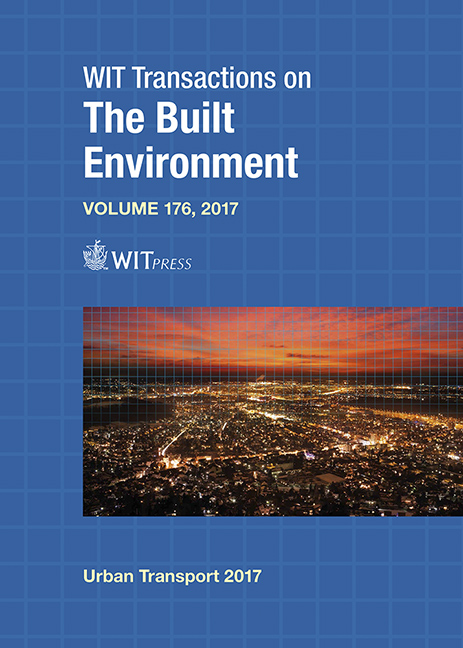THE BARRIERS IN THE IMPLEMENTATION PROCESS AND THE OPERATION OF INNOVATIVE URBAN TRANSPORT: THE CASE OF BRT JAKARTA
Price
Free (open access)
Transaction
Volume
176
Pages
12
Page Range
69 - 80
Published
2017
Size
302 kb
Paper DOI
10.2495/UT170071
Copyright
WIT Press
Author(s)
SYNTHIA ANGELINA, DIRK VALLÉE, CONNY LOUEN
Abstract
Rapid urbanization and motorization in developing countries are empirically engendering the unsustainable urban transport. Jakarta is now suffering from its negative consequences such as traffic congestion, accident, air pollution, noise, resources depletion, and environmental degradation. The implementation of Bus Rapid Transit (BRT) in Jakarta as one of the innovative urban transport policy in Indonesia is expected to overcome the urban transport problems and contribute to sustainability transition. Unfortunately, after a decade of BRT operation, the daily patronage has been declining over years and the traffic congestion in Jakarta is still deteriorating. There is a growing awareness of the governments of Indonesia towards more sustainable urban transport that states in the National Mid-Term Development Planning 2015–2019 to give a priority for the improvement and development of rapid transit system in urban areas, including the further development of BRT Jakarta and its dissemination to other cities in Indonesia. However, for the effective urban transport improvement, the barriers which impede a shift to more sustainable transport need to be identified. This study aims to identify barriers encountered in the implementation of BRT Jakarta so that the question of why the progress towards sustainability has been slow through this system can be answered. Strategic Niche Management (SNM) approach is adopted to reveal the barriers in the implementation process and the operation of BRT Jakarta. The important measures in the implementation process such as decision-making framework, financing system, and approval procedure are described. The result shows that technological, government policy and political, and the control of infrastructure and maintenance aspects are the main barriers that hinder the effective implementation and further development of BRT Jakarta. The barriers identified in this study may be useful for the planners and policy makers in Indonesia and other developing countries to establish implementation-oriented strategies towards more sustainable urban transport.
Keywords
developing country, implementation process, public transport, sustainable transport, strategic niche management





